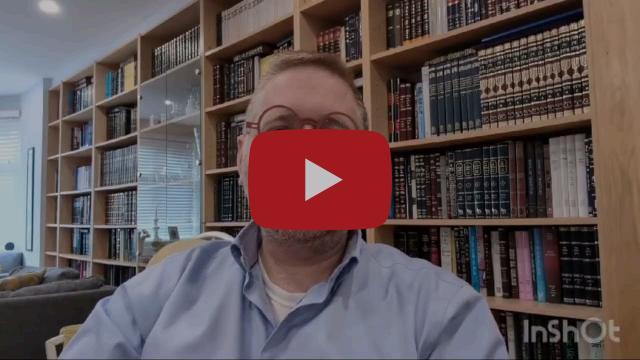View this email in your browser


View this email in your browser


Rabbi Andrew Shaw Chief Executive, Mizrachi UK
We are living in a crazy and worrying world.
Every day another story seems to hit, where we just can’t believe what the world has come to.
This week we focus on Washington DC
Bibi Netanyahu was there to speak to Congress for the fourth time. He opened his words with the following statement
“We meet today at a crossroads of history. Our world is in upheaval. In the Middle East, Iran’s axis of terror confronts America, Israel and our Arab friends. This is not a clash of civilisations. It’s a clash between barbarism and civilisation. It’s a clash between those who glorify death and those who sanctify life.”
Just a few yards from where he spoke these words, we realised that the support for barbarism was not just in the Middle East, but alive and well in the West. Vile individuals yelled out anti-Israel and anti-America slogans. They even burnt an American �ag.
This evil is praised by some politicians, academics and others – it is staggering How can leaders not see what is in front of their eyes!?
Yet, we can see this almost exactly in our Parsha, Parshat Pinchas, which is really part 2 of the drama which began at the end of Balak, where Zimri, sexually took Cozbi in front of the Ohel Moed and challenged Moshe.
As the Gemara in Sanhedrin explains. Bilaam counselled Balak to entice the Jewish men to immorality. Consequently, Midianite and Moabite women invited the Jews to feast with them and then to seduce them.
What is shocking about Zimri and Cozbi is that they were both aristocrats, Zimri being the leader of the tribe of Shimon and Cozbi was a princess of Midian. Notwithstanding this, Zimri’s hatred towards the Moshe, the Mesorah and Hashem, and Cozbi’s hatred towards the Jews, perforated any layer of honour they may have had and allowed them to act publicly in such horri�c and disgusting ways.
We know what then happens, Moshe freezes with the blatant disgrace that is transpiring, and it is up to Pinchas to take matters into his own hands by spearing both Zimri and Cozbi and ending the plague, which Hashem had sent as a punishment against the Jews.
You might think that Zimri and Cozbi were simply performing a crime of passion and Pinchas was the zealous one.
However, that is not correct.
Look where the act was conducted. Zimri brought Cozbi to Moshe, in front of the Ohel Moed. If it was just a simple act of passion, they should do it out of sight.
It was intentional, ideological and a challenge to Moshe’s leadership, the values he stood up for and ultimately to Hashem.
As the Gemara tells us Sandhedrin 82a:
It is stated: “And Moses said to the judges of Israel: Each of you shall slay his men who have adhered unto Ba’al-Peor” Bamidbar 25:5. The tribe of Shimon went to Zimri, son of Salu, their leader, and said to him: They are judging cases of capital law and executing us and you are sitting and are silent? What did Zimri do? He arose and gathered twenty-four thousand people from the children of Israel, and went to Cozbi, daughter of Zur, princess of Midian, and said to her: Submit to me and engage in intercourse with me She said to him: I am the daughter of a king, and this is what my father commanded me: Submit only to the greatest of them. Zimri
said to her: He, too, (referring to himself), is the head of a tribe; moreover, he is greater than Moses, as he is the second of the womb, as he descends from Shimon, the second son of Yaakov, and Moses is the third of the womb, as he descends from Levi, the third son of Yaakov. He seized her by her forelock and brought her before Moses. Zimri said to Moses: Son of Amram, is this woman forbidden or permitted? And if you say that she is forbidden, as for the daughter of Yitro to whom you are married, who permitted her to you? Th ehalakha with regard to the proper course of action when encountering a Jewish man engaging in intercourse with a gentile woman eluded Moses. All of the members of the Sanhedrin bawled in their weeping, and that is the meaning of that which is written: “And they are crying at the entrance of the Tent of Meeting” Bamidbar 25:6.
This was a battle between good and evil, between holy and profane, between civilisation and barbarism!
To worship Ba’al Peor, you would defecate in front of the statue, as well as in this case, engage in relations with the Midianite and Moabite women – it was disgusting – yet Zimri made it out to be holy.
It was an upside-down world then.
It is an upside-down world now.
As Bibi reminded America:
Defeating our brutal enemies requires both courage and clarity. Clarity begins by knowing the difference between good and evil. Yet, incredibly many anti-Israel protesters, many choose to stand with evil. They stand with Hamas. They stand with rapists and murderers. They stand with people who came into the kibbutzim, into a home, the parents hid the children, the two babies, in the attic, in a secret attic. They murdered the family, the parents, they found the secret latch to the hidden attic and then they murdered the babies. These protesters stand with them. They should be ashamed of themselves. They refuse to make the simple distinction between those who target terrorists and those who target civilians, between the democratic State of Israel and the terrorist thugs of Hamas.
Throughout history, including our Parsha and today, there are those that try and explain the evil as righteous. It was fuelled by a hatred of Moshe and Hashem in Pinchas, it is fuelled by a hatred of Israel and the Jewish people today.
The answer is the same, we must remain resolute and destroy the evil in our midst, whether physically as in the case of Hamas and Hezbollah or ideologically in the hearts and minds of the West.
Bibi ended with a note of hope:
Despite these times of upheaval, I’m hopeful about the future. I’m hopeful about Israel because my people, the Jewish people, emerged from the depths of hell, from dispossession and genocide, and against all odds we restored our sovereignty in our ancient homeland, we built a powerful and vibrant democracy, a democracy that pushes the boundaries of innovation for the betterment of all humanity.
As the three weeks begins, we must continually rededicate ourselves to Eretz Yisrael, Am Yisrael and Torat Yisrael.
We know historically what this time period has brought to our people, but despite the pain over the centuries, we have always known how to distinguish between good and evil and to continue to live our mission to be an Mamlechet Kohanim v’Goy Kadosh.
That is how we survive and thrive, even in an upside-down world.
Shabbat Shalom





Copyright (C) 2024 Mizrachi UK. All rights reserved.
Our mailing address is:
Want to change how you receive these emails? You can update your preferences or unsubscribe